Estimated reading time: 13 minutes
Considering the joy and companionship a parrot can bring into your home, it’s understandable that you might be curious about the cost of bringing one of these vibrant creatures into your life.
Did you know that while some smaller parrot species like Budgies can be quite affordable, prices for larger and more exotic birds such as African Greys can soar to thousands of dollars?
Read on to learn more about the costs associated with owning a parrot—from initial purchase price to ongoing care expenses—providing a comprehensive financial breakdown.
Key Takeaways
- The cost of a parrot depends on its species, size, and lifespan. Small birds like Budgies are cheaper, around $15–$50. Big ones like African Greys can be costly, up to $3,600.
- Extra costs include cages big enough for the bird and its playthings. For small birds, cages may start at $30. For large birds like Macaws or African Greys, they can go from $200 to over $1,000.
- Parrots have a long lifespan—small ones might live 15–20 years while big ones can live over 50 years. This means caring for a parrot is a long time promise that costs money year after year.
- Different places have different prices for parrots. Pet stores might charge more than breeders or rescues where you could adopt a parrot at a lower cost.
- Remember ongoing expenses too! Vet visits can be $50–$100 each time; food and treats add up; and don’t forget cleaning supplies to keep your bird’s home clean!
Understanding Parrot Pricing
Factors Influencing Parrot Price
Buying a parrot isn’t just about picking out a feathered friend. Many things change how much you’ll pay. Here are some key factors:
- Species: Different kinds of parrots cost different amounts. For instance, a budgie might be as low as $15 while an African Grey can reach up to $3,600.
- Size: Small birds like parakeets usually have a lower price tag than big ones like macaws.
- Lifespan: Parrots that live longer, like Amazons or cockatoos, can be pricier because they will be with you for many years.
- Breeding Location: A bird from a local breeder might cost less than one from far away because bringing them to you costs money too.
- Purchase Location: Pet stores often have higher prices than adopting directly from a rescue or previous owner.
Species
Parrot species come in many shapes and colors, and each kind has a different price. Cheap parrots like Budgies might cost as little as $15. But if you want something special, like an African Grey Parrot with strong talking abilities, you could pay $3,500 or more.
Smaller birds tend to be less pricey, while large parrots with long lifespans or rare breeds might make your wallet much lighter.
Remember that these prices can vary depending on where you buy your feathered friend and how rare they are!
Size
Size matters a lot when you’re thinking about how much a parrot will cost. Larger birds often have higher price tags.
Depending on the size of the parrot, you might pay only $50 for a small parakeet’s cage, but bigger birds like macaws need much more space. A cage big enough for them can be way more expensive. Their food also costs more because they eat larger amounts.
Bigger parrots don’t just affect your wallet; they need lots of room to spread their wings and play. A small bird might be happy with a simple perch, but huge ones like African Greys or Amazons need playgrounds with ladders and ropes for exercise and mental stimulation.
Make sure your home has enough space before bringing one of these impressive creatures into your life!
Lifespan
Parrots can live for a long time, depending on the species. On average, smaller parrots like parakeets and cockatiels may live for 15 to 20 years. Larger parrot species such as macaws and African Greys have even longer lifespans, sometimes reaching 50 years or more!
It’s important to consider the commitment to caring for a pet that will be part of your life for many years when deciding to bring home a parrot. This includes understanding the potential costs related to their long lifespan, including veterinary care and ongoing expenses.
Consideration of all costs is essential if you’re thinking about getting a pet bird with a lengthy lifespan. Parrot ownership brings joy but also requires careful planning for their needs over many years, encompassing both financial aspects and emotional commitment to ensure they lead healthy and happy lives in our homes.
Breeding Location
Parrots’ breeding location can affect their cost. Prices vary depending on whether the parrot is bred domestically or imported from abroad. Domestic breeding may result in lower prices due to reduced shipping and handling expenses, while imported parrots might be pricier because of import duties and transportation costs.
It’s important to consider the ethical aspects too, as purchasing a parrot that has been domestically bred can contribute to sustainable practices and conservation efforts for native wildlife.
Parrots bred in different locations also have varying adaptability to local climates and environments, which can impact their overall health and adjustment when kept as pets. Additionally, certain species may face legal restrictions on importation based on conservation concerns or endangered status, potentially affecting their availability in different regions.
Purchase Location
Parrots can be bought from various places like pet stores, breeders, or bird rescues. Pet stores may offer a variety of parrot species, but prices and quality can vary.. Breeders often specialize in specific types of parrots and may provide more information about the bird’s background.
Bird rescues are great for adopting parrots in need of a new home. They usually have lower adoption fees compared to buying from pet stores or breeders. Regardless of where you get your parrot, consider ongoing care costs along with the initial purchase price.
When choosing where to purchase a parrot, it’s important to consider both the initial cost and long-term care expenses. Pet stores offer convenience but may come with higher prices.
Breeders can provide specialized knowledge about the bird’s history but might have higher prices as well. Adopting from rescues not only helps birds in need but also offers an affordable option.
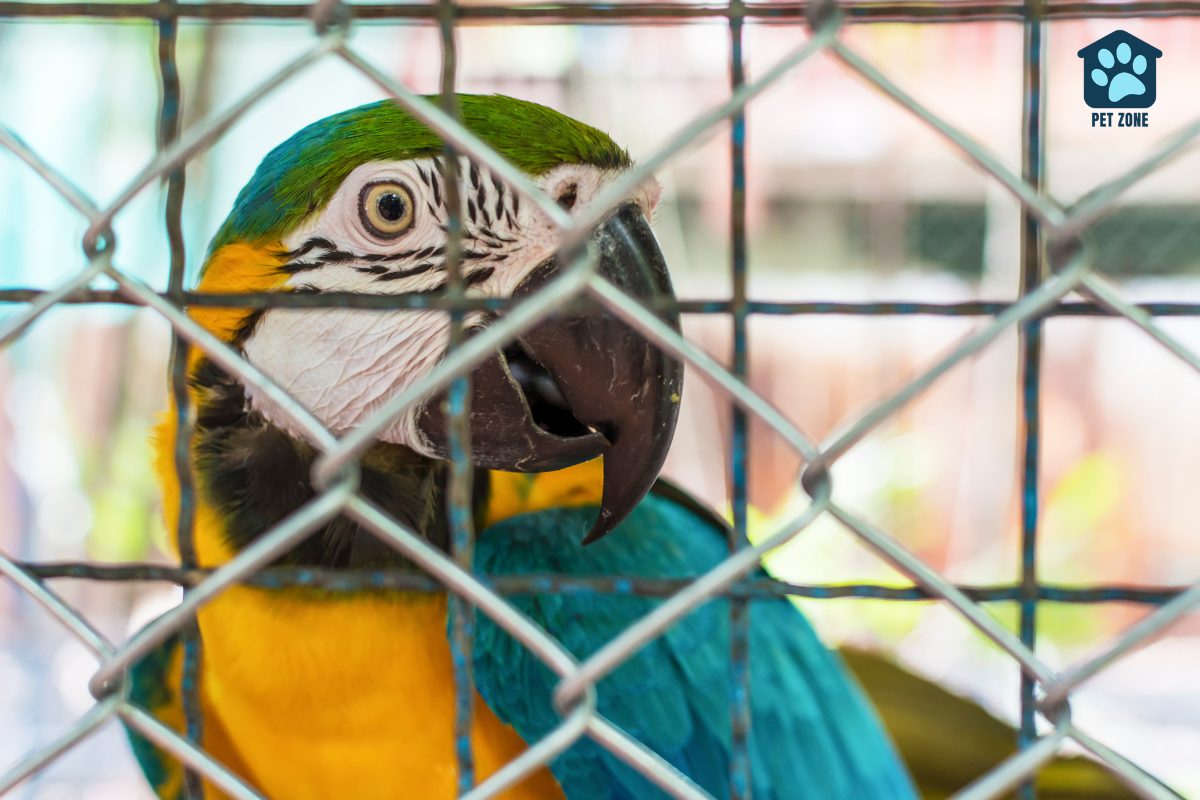
Parrot Prices by Species
The cost of parrots can vary widely depending on the species, with African Grey Parrots typically being more expensive compared to Amazon Parrots, Cockatiel Parrots, Macaw Parrots, and Parakeet Parrots. Each species has its own unique price range based on factors such as rarity and demand in the pet market.
African Grey Parrots
The African Grey Parrot is a popular pet due to its intelligence and ability to mimic human speech. These parrots can cost around $3,600 on average, making them one of the more expensive species.
They have long lifespans, often living for 50-60 years in captivity, so potential owners need to consider the long-term commitment and costs associated with their care. Additionally, African Grey Parrots require mental stimulation, a spacious cage at an estimated price range from $1,500 to $3,000 depending on size, and regular veterinary check-ups which add up as part of ongoing expenses.
Also because of their high intelligence level it’s vital that they are given an engaging environment with interactive toys and activities to prevent boredom or potential behavior problems.
Amazon Parrots
These colorful birds are known for their engaging personalities and ability to mimic human speech. The cost of an Amazon parrot can range from $400 to $1,500 depending on the specific species and factors such as age and health.
It’s important to consider not just the upfront cost of purchasing an Amazon parrot, but also the ongoing expenses like a spacious cage, which can range from $200 to $600, along with regular vet check-ups averaging at about $100 per visit.
Additionally, you’ll need to budget for high-quality food and toys that provide mental stimulation for your feathered friend—facts that should be carefully weighed before bringing home one of these delightful birds.
Cockatiels
Cockatiels are a popular choice for bird lovers due to their playful and affectionate nature. They are also known for their distinctive crest and colorful plumage, making them an attractive addition to any household.
When it comes to cost, these medium-sized parrots are more affordable than larger species like Macaws or African Greys. On average, the price of a Cockatiel can range from $125 to $200 depending on factors such as age, color variations, and breeder reputation.
In addition to the initial purchase price, potential owners should consider ongoing expenses such as a suitable cage (ranging from $30 to $150), quality food and treats (averaging around $25 per month), regular vet check-ups (costing approximately $50 per visit), and other essential supplies like toys and perches.
Macaws
The majestic Macaw Parrot is known for its vibrant plumage and impressive size. Native to Central and South America, these large parrots can measure up to 3 feet in length.
With such exotic beauty comes a substantial price tag, with Macaws generally costing around $1,156.00. Their larger size also means higher expenses for items like cages and food compared to their smaller counterparts.
As highly intelligent creatures with long lifespans of up to 50 years, potential owners should be aware of the commitment required in terms of time, care, and financial resources. Considerations should include not only the initial purchase cost but also ongoing expenses such as vet visits and mental stimulation needs.
Parakeets (Budgies)
Parakeets, also known as budgies, are a popular choice for new bird owners due to their smaller size and lower cost. On average, it can cost around $15 to $50 to bring home a budgie.
Additional expenses like a bird cage and monthly care come to about $100 per month. Budgies have an average lifespan of 5-10 years but can live up to 15 years with proper care. Due to their small size, they don’t require as much space as larger parrots, making them suitable for pet owners who may have limited living space.
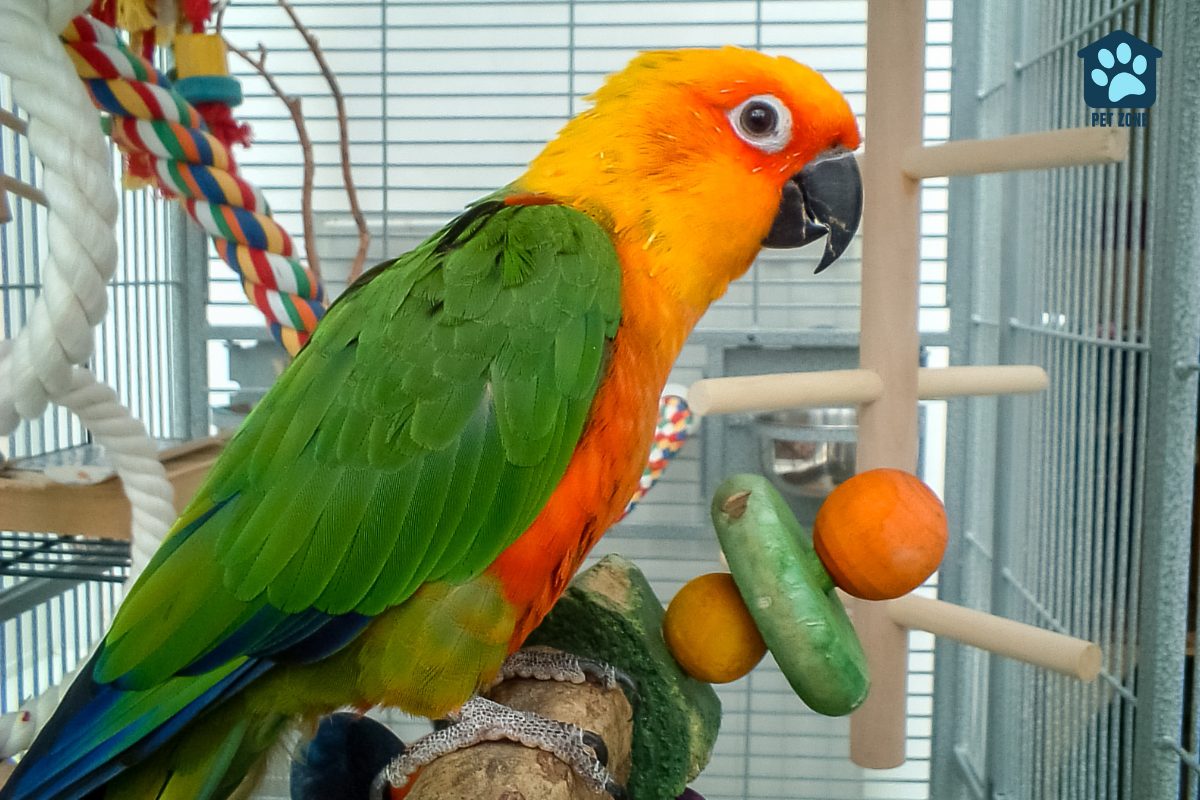
Additional Expenses to Consider
Bird Cage and Carrier
When getting a parrot, it’s important to consider the cost of a suitable bird cage and carrier. A small parrot like a Budgie may need a cage that costs around $50 to $100, while larger species such as Amazons or African Greys might require more expensive options.
On average, the first-year expenses for pet birds include about $70 for a cage. The ASPCA estimates annual care costs for small pet birds at approximately $300. So, understanding these additional expenses is vital in planning for your new pet’s needs.
Now let’s delve into how the type of cleaning supplies required can impact overall care costs for your feathered friend.
Cleaning Supplies
When caring for a parrot, having the right cleaning supplies is essential. You’ll need bird-safe disinfectant, brushes or sponges, and non-toxic soap to keep your parrot’s cage clean and hygienic.
Regularly cleaning their food and water dishes will help prevent bacteria buildup that could affect your parrot’s health.
Consider investing in a handheld vacuum cleaner with attachments for reaching into cage corners and removing feathers and debris. Having these supplies on hand will make it easier to maintain a healthy environment for your feathered friend.
Vet Visits and Insurance
Taking your parrot for regular vet check-ups is essential for their health and longevity. Parrots need special avian veterinarians who understand their unique needs. The average cost of a routine vet visit can range from $50 to $100, with additional expenses for any tests or treatments.
It’s also important to consider pet insurance to help cover unexpected medical costs, which can vary depending on the coverage and the bird’s age.
The initial purchase price of a parrot is just one part of the overall cost; ongoing care, including vet visits and potential medical emergencies, should be factored in when considering bringing a parrot into your home.
Food and Treats
Parrots need a balanced diet to stay healthy. Their diet should include a variety of fresh fruits, vegetables, and high-quality pellets. It’s important to avoid feeding them avocado or chocolate as these can be toxic for them.
Additionally, parrots enjoy treats like nuts and seeds but they should be given in moderation due to their high-fat content. Providing clean water is crucial as well. Regularly offering treats and rotating food items can keep your parrot engaged and satisfied.
It’s also important to remember that fresh food and water dishes should be provided daily, along with regular cage cleaning to maintain a hygienic environment for your pet bird. As social creatures, they benefit from interacting with their owners during mealtime, which fosters bonding and mental stimulation for the parrot.
Considerations Before Purchasing a Parrot
Longevity of Parrots
Parrots have long lifespans, varying by species. For instance, the parakeet can live for 15 to 18 years on average. Larger parrot species such as Macaws and African Greys may even reach 50 to 70 years of age in captivity.
This means that owning a parrot is a significant commitment, requiring attention to their well-being over many years.
It’s important for potential pet owners to understand the longevity of different parrot species before making a decision about bringing one into their home. Ensuring they are prepared for the commitment can lead to a fulfilling relationship with these intelligent and vibrant birds.
Consider All the Costs of Owning a Parrot
Considering all costs is crucial before bringing a parrot into your home. The initial purchase price is just the beginning – ongoing care includes food, toys, cage, vet visits, and more.
Parrots have long lifespans and need mental stimulation and social interaction, so it’s important to factor in all these expenses when considering adding a parrot to your family. Annual care for small pet birds can amount to around $300 according to the ASPCA estimates, while larger species like Macaws can cost significantly more both upfront and on an ongoing basis.
Parrot ownership should be seen as a long-term commitment; understanding the full scope of financial responsibility involved will ensure that you are fully prepared for the costs associated with caring for these intelligent and social creatures.
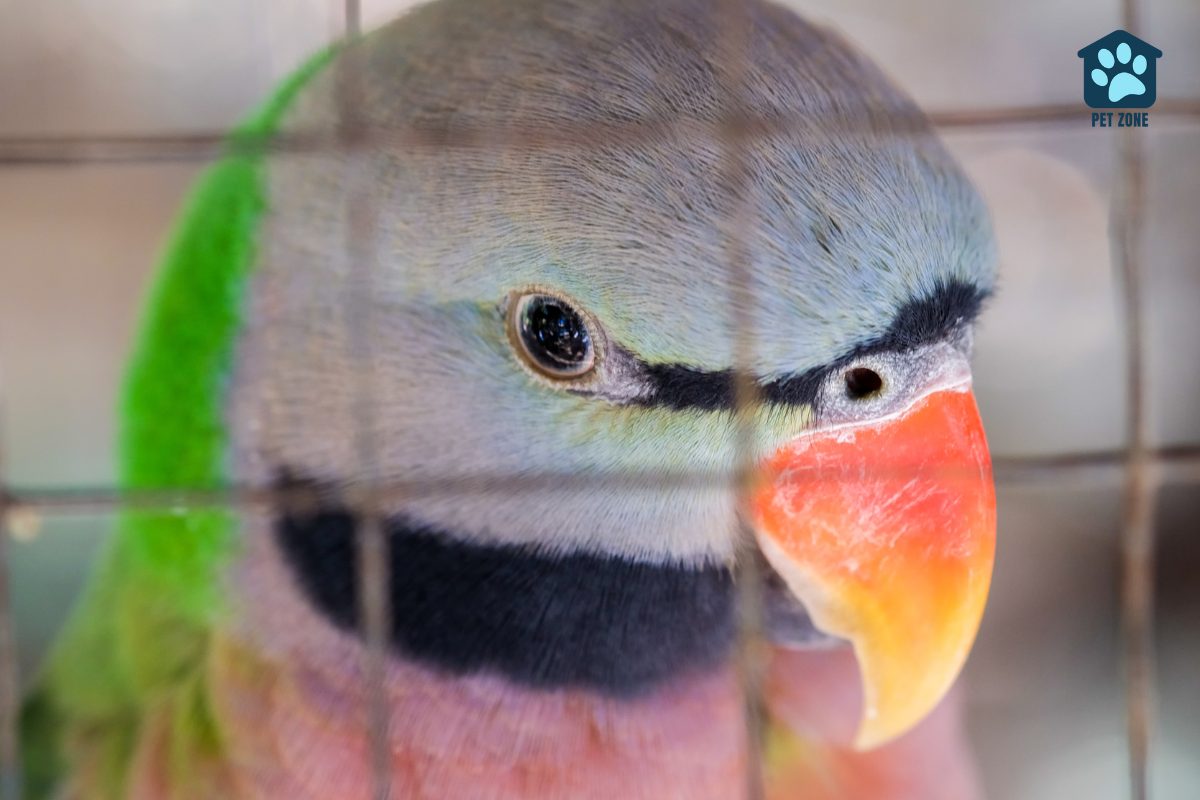
Conclusion
The cost of a parrot can vary widely based on factors such as species, size, and lifespan. By considering all potential expenses upfront and understanding the long-term commitment involved, prospective parrot owners can make an informed decision.
Highlighting practical strategies for managing costs and offering insights into various species’ price ranges has provided valuable tools for those considering adding a parrot to their family.
Remember that careful planning and responsible ownership contribute to ensuring a happy, healthy life for your feathered friend. Ultimately, embracing the joy of pet companionship while being mindful of the associated responsibilities leads to fulfilling experiences for both humans and birds alike.
Frequently Asked Questions
The cost of a parrot can vary widely, depending on the species and size. For example, small parrots might be less expensive while large talking parrots like an African Grey could cost thousands.
Yes, there is! The price of talking parrots depends on their type – Australian King Parrots may have different prices compared to other native Australian species. Usually, the more advanced the bird’s ability to talk, the higher the price.
Absolutely! Adopting a parrot from a rescue can often be cheaper than buying one from a store or breeder. Plus, you’re giving a home to a bird in need.
Before you get excited and bring home a new parrot, you must remember that commitment to pet care is crucial for owning any pet including birds! They need mental stimulation and proper care to stay healthy.
Well, apart from just paying for your feathered friend – which could range anywhere from $20 for small ones up to $3600 for an African Grey – you also need to budget for food, toys and vet visits.
Not always. Some adult speaking varieties like simple budgies don’t hit your wallet hard but keep in mind that caring well for any animal leads to expenses over time.
As an Amazon Associate I earn from qualifying purchases.
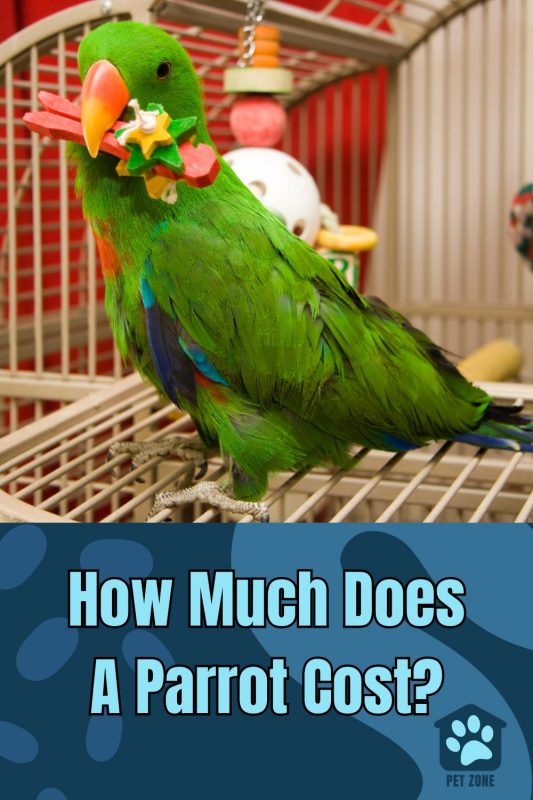


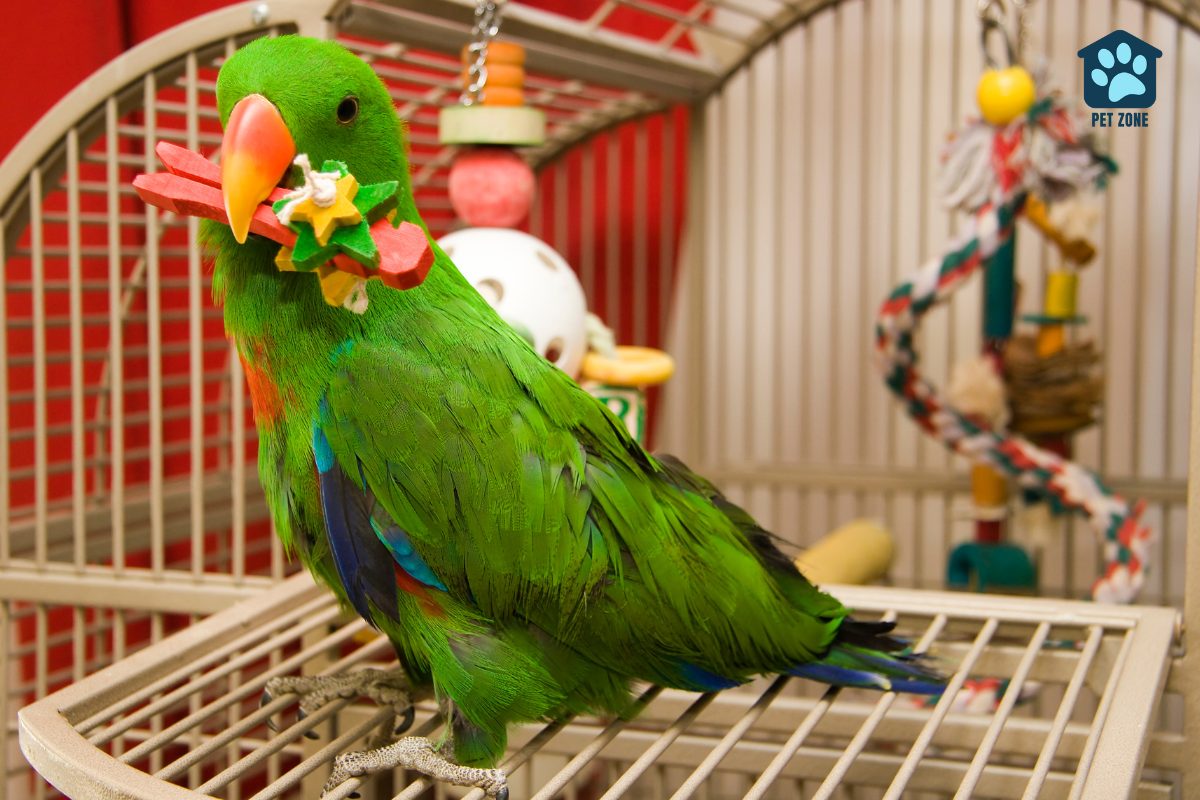
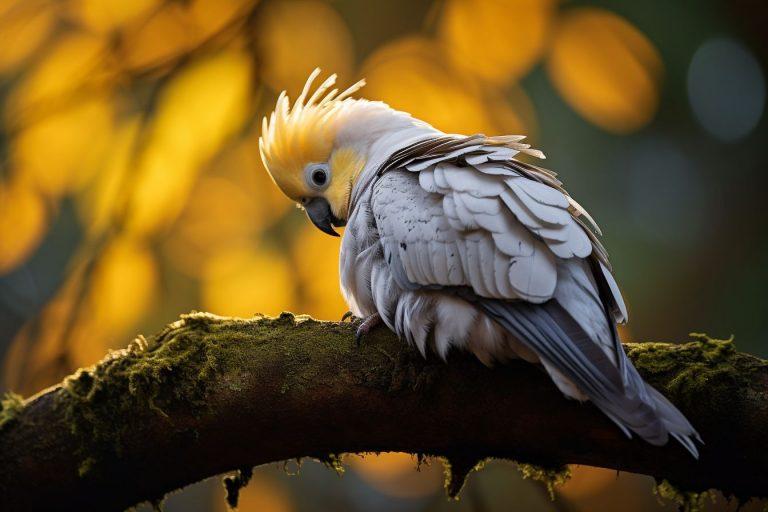
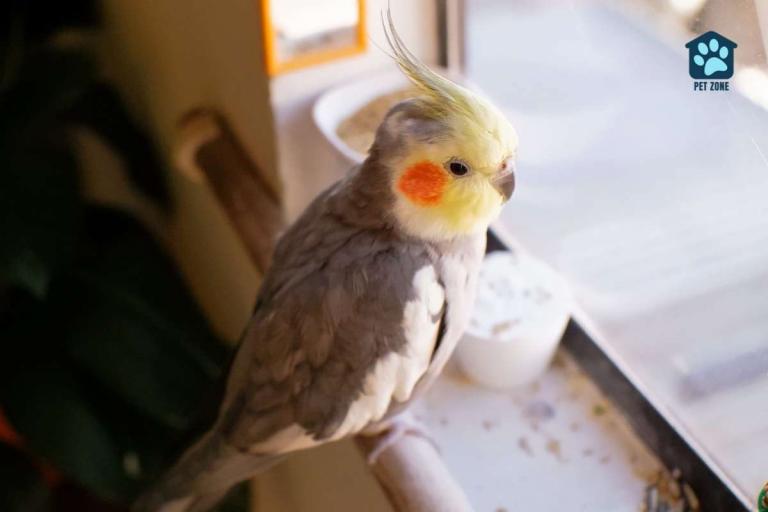
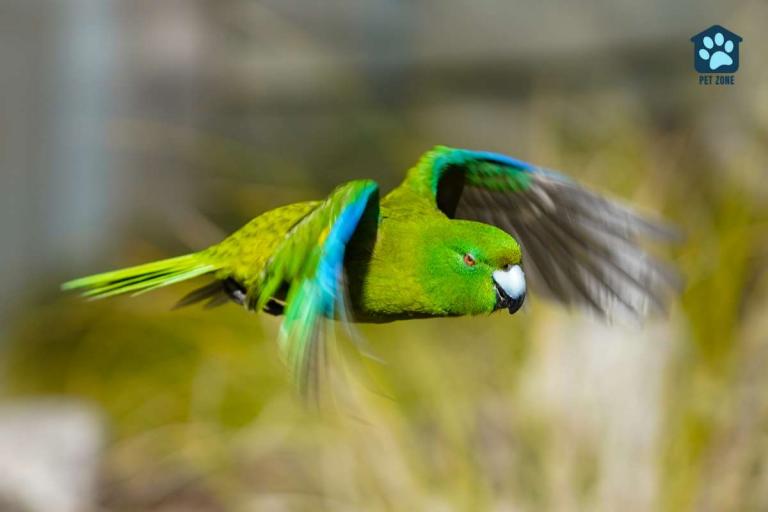
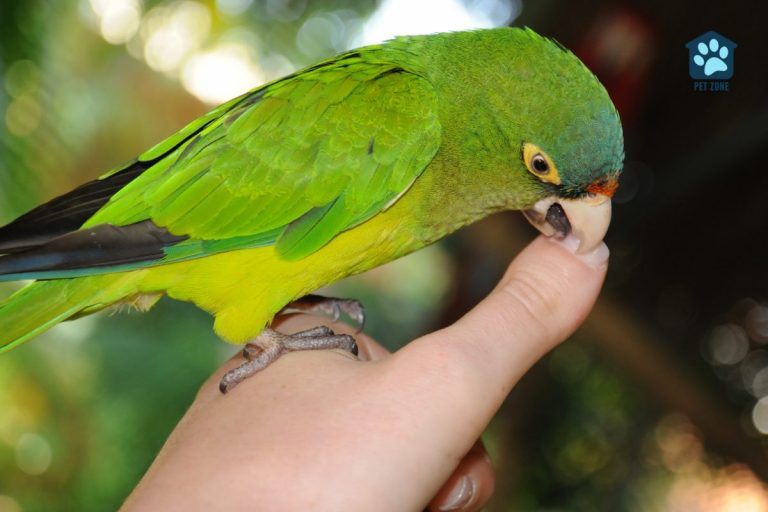
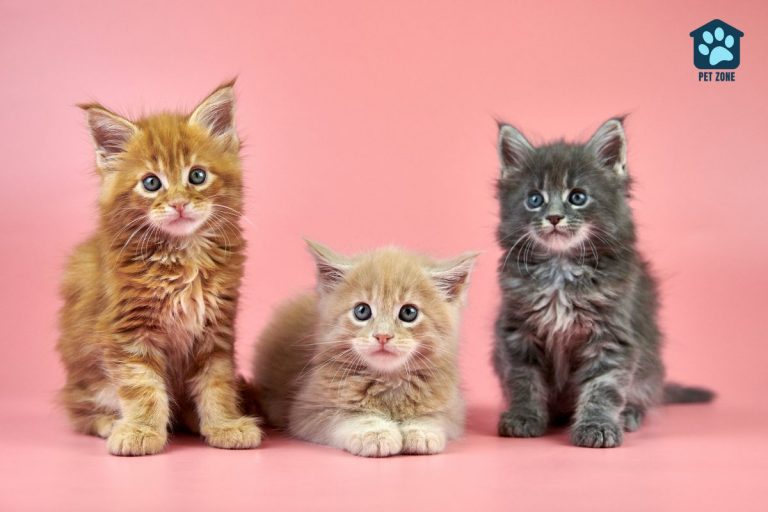
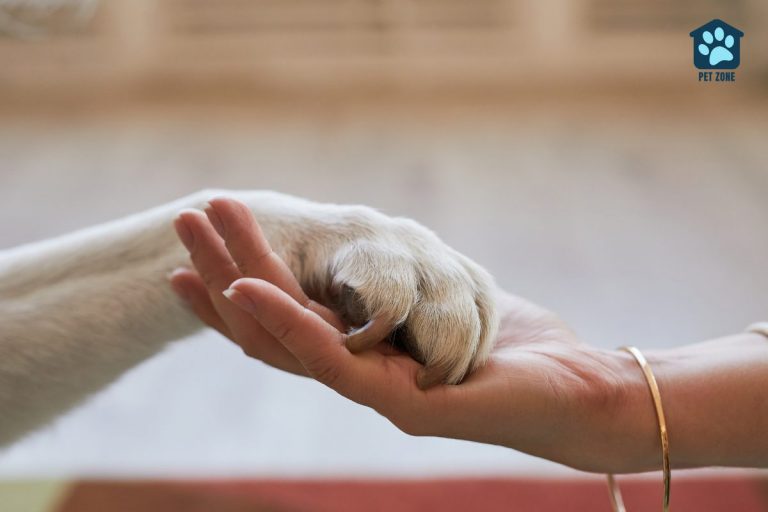
I had no idea parrots could live so long! I can imagine they would need a lot of space. Great post!